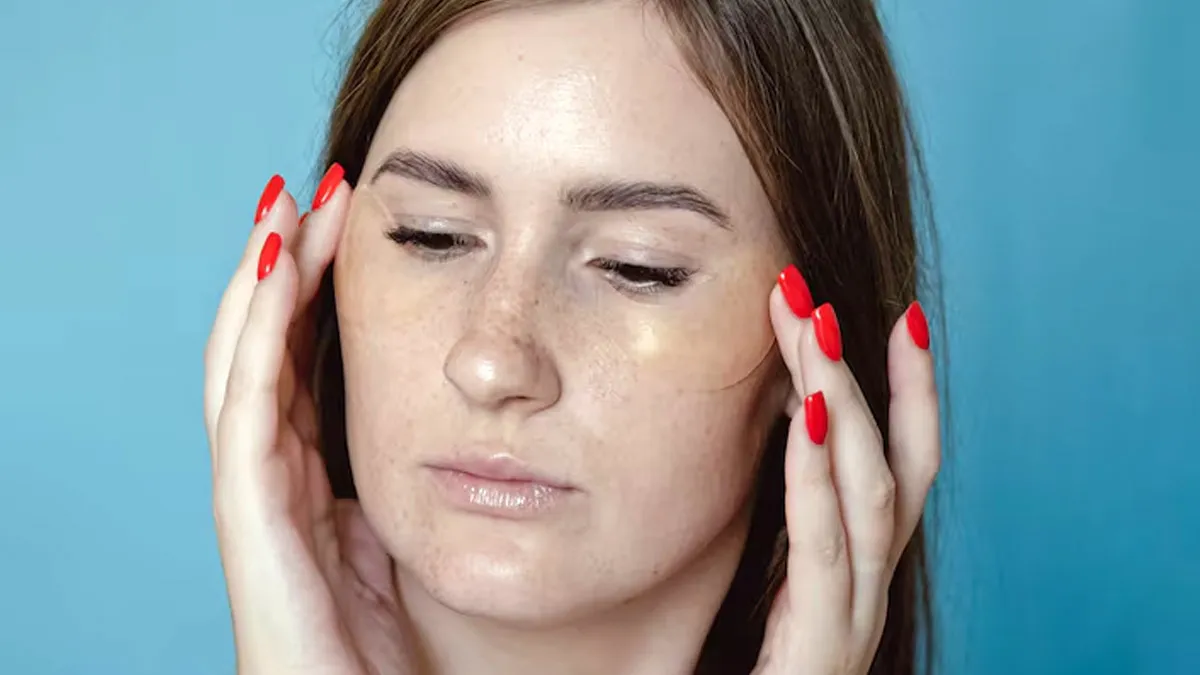
Your skin is your body’s first point of contact, and its outermost layer, the stratum corneum, plays a vital role in protecting you. This layer is often compared to a brick wall, where the skin cells act as bricks, held together by a lipid “mortar” made of cholesterol, fatty acids, and ceramides. This structure locks in moisture while shielding your body from harmful pathogens and irritants.
Table of Content:-
RELATED: How To Know If You Are Washing Your Towels Too Often? Ways It Is Ruining Your Skin
What Are Micro Tears?

Micro-tears are tiny, often invisible injuries that occur on the skin’s surface when the protective barrier is compromised. These small fissures can result in discomfort, sensitivity, and even inflammation. Friction, harsh chemicals, repetitive motions, and over-exfoliation are some of the most common causes. While you may not see micro-tears, you might notice increased sensitivity, a stinging sensation when using products, or flaky, peeling skin.
How to Prevent Micro Tears?
1. Be Gentle When Cleansing
Using a mild, fragrance-free cleanser is crucial to protecting your skin barrier. Harsh cleansers can strip away the natural oils your skin relies on, making it more susceptible to damage.
2. Keep Your Skin Hydrated
Hydration is key to repairing micro-tears. A lightweight, non-comedogenic moisturiser containing ceramides or hyaluronic acid can help restore moisture and strengthen the skin’s protective layer.
3. Avoid Harsh Products
Harsh ingredients like alcohol, strong acids, or artificial fragrances can irritate your skin further. Look for skincare products with soothing ingredients like aloe vera or panthenol to calm and nourish your skin.
4. Skip Exfoliation for a While
Exfoliating too often or using abrasive scrubs can aggravate micro-tears. If your skin feels sensitive, it’s best to avoid exfoliation entirely until it has healed. The American Academy of Dermatology suggests that individuals with sensitive skin or darker complexions might consider using a gentle cloth along with a mild chemical exfoliator.
5. Use Sunscreen Daily
Protecting your skin from UV damage is essential for maintaining its health. A broad-spectrum sunscreen with at least SPF 30 will shield your skin from further harm and support the healing process.
Simplify Your Skincare Routine
Using too many products can weaken your skin barrier and increase the risk of micro-tears. Stick to the basics, cleanser, moisturiser, and sunscreen, and avoid layering multiple active ingredients. If you’re unsure about which products to use, consult a dermatologist for tailored advice.
pH Balance In Skin Health

Your skin’s natural pH is slightly acidic, around 4.7, which helps it ward off harmful microbes. According to research, cleansers with a pH between 4.0 and 5.0 are ideal for maintaining this balance. Products outside this range can disrupt your skin barrier, leading to irritation and potential micro-tears.
How Plant Oils Can Help
Plant oils, such as sunflower or jojoba oil, have been shown to repair the skin barrier and lock in moisture. These oils also offer anti-inflammatory and antioxidant properties, helping to soothe and protect damaged skin.
RELATED: Skin Slugging: Who Should Try And Who Should Avoid It
Takeaway
Protecting your skin barrier is essential for maintaining healthy, resilient skin. By simplifying your routine, avoiding harsh products, and focusing on hydration, you can minimise the risk of micro-tears and keep your skin strong. Pay attention to your skin’s signals and make adjustments as needed to ensure it stays healthy and protected.
Also watch this video
How we keep this article up to date:
We work with experts and keep a close eye on the latest in health and wellness. Whenever there is a new research or helpful information, we update our articles with accurate and useful advice.
Current Version